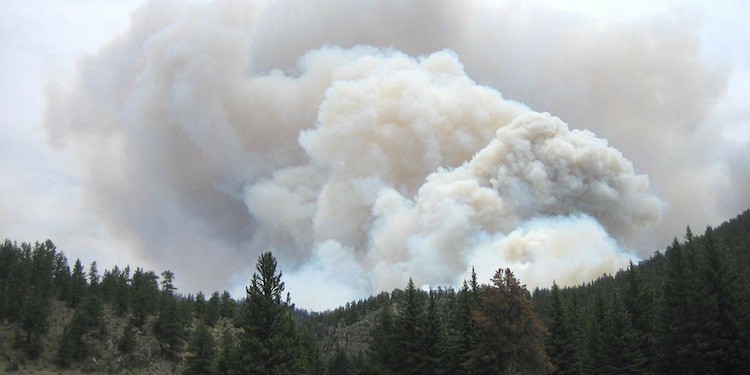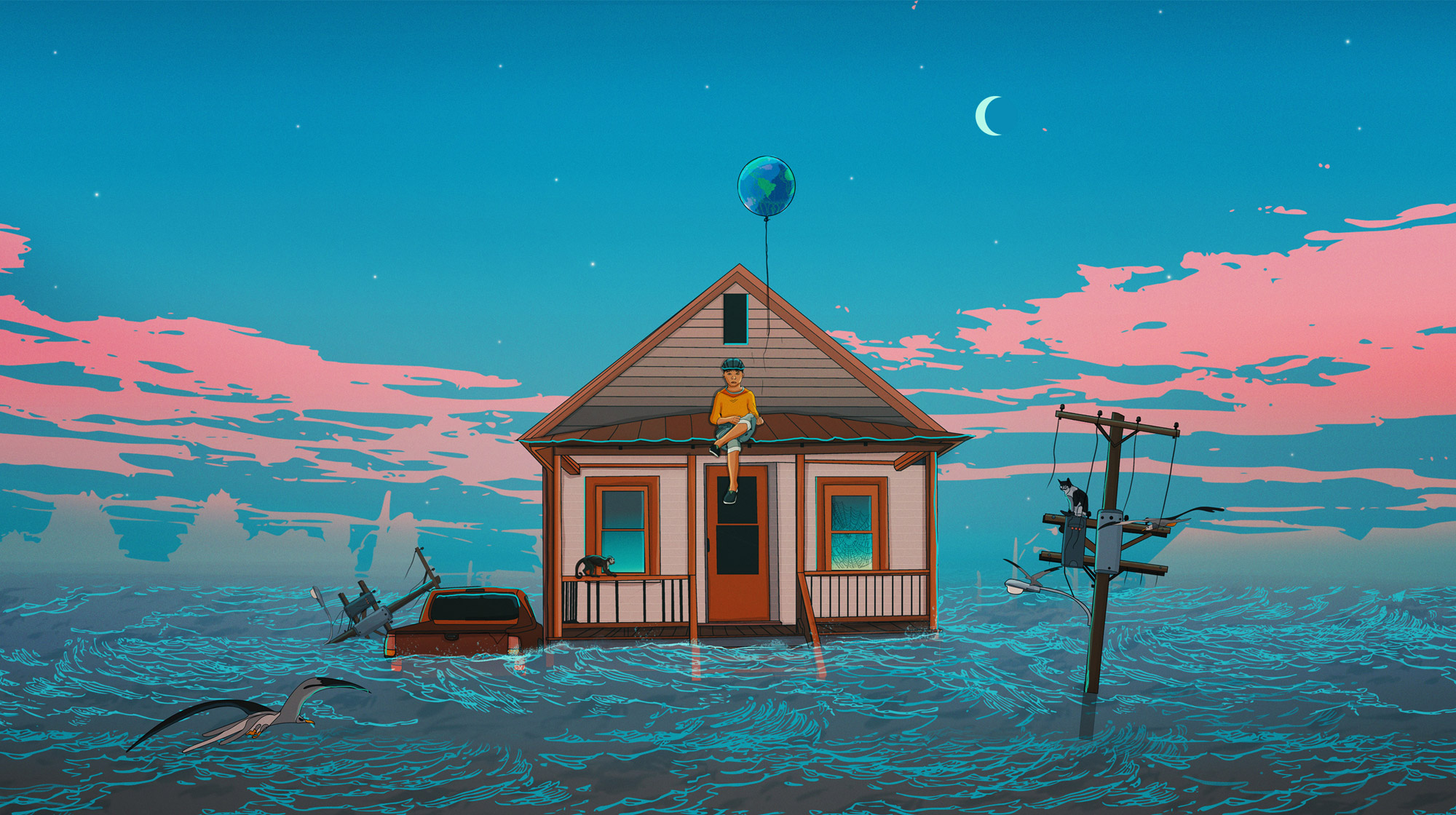[image: Marinel Sheu | Eco Anxiety]
I spoke with my friend and colleague Lisa Cohn about children and climate change recently, for an issue of PDX Parent. Lisa and her son Michael, age 11, are co-authors of the “Bash and Lucy” books and audiobooks.
Some of Michael’s anxieties about climate change were prompted by the severe Eagle Creek fire in the Columbia Gorge near Portland in 2017. Michael’s question “Will fire get our house?” was completely age appropriate. Young children naturally consider how global events might affect them or their families.
I am reminded how my then 4-year-old daughter reacted to images of the 2011 Tōhoku earthquake and tsunami that led to the Fukushima nuclear disaster. She happened to be at my side when I first saw the news videos of the tsunami on my laptop and she immediately asked, “Will the tidal wave come to Portland?” Even as a psychologist who understands child development, the moment was jarring. I reassured her. But, I realized I needed to be more careful about news going forward.
I shared a number of good recommendations for parents in Lisa’s article, including shifting the focus from distant concerns to what kids do have control of, including local activities like gardening and tree planting, clubs at their schools, and being outdoors. Remember that kids respond to positive visions, just like you did when you were young: cool technologies, stories of adventurous scientists, inspiring leaders, and group activities.
Here is the article in full below.
Take care and keep in touch,
— Dr. Thomas Doherty

Are Your Kids Feeling Eco-Anxiety over Climate Change?
Lisa Cohn
My 11-year-old son, Michael, worries that a wildfire caused by climate change will engulf our home in Portland. Each summer, he experiences the effects of bigger and more destructive wildfires: They blow smoke into Portland, often sprinkling ash onto our cars and into our lungs.
During the devastating Eagle Creek fire in the Columbia River Gorge in 2017, some of his friends were evacuated from their home. We stopped taking our daily walks with neighbors in Forest Park because the air was too polluted with smoke and ash.
“Will fire get our house?” Michael often asks. He also worries about climate change’s effect on wildlife, often saying, “If we don’t do something soon, there will be more plastic than fish in the oceans.”
With news about the effects of climate change–wildfires, drought, hurricanes and floods–blasting us every day, it’s understandable that kids of all ages will feel anxious, said Thomas Doherty, an award-winning psychologist in Portland who specializes in anxiety spurred by climate change. However, while kids may be feeling worried, they may not always communicate these feelings, he said.
Added Jenne Henderson, a psychologist for the Children’s Program in Portland who specializes in anxiety, “Climate change is very much a part of kids’ awareness, through school discussions or projects, things they may hear parents talk about or through social media.”
To discover whether children are feeling climate change anxiety, it’s important to listen when kids talk about what they’re learning in school or from the media. “Get a sense of how they think about it,” Henderson suggested. Sometimes, in response to what they’re hearing in school or seeing on social media, they develop feelings of impending doom.
“They get the impression, whether true or not, that the climate is in a bad state and there’s nothing we can do about it.”
In this case, it’s important to help kids feel as if they have some control. Encourage them to participate in projects that improve the environment, she suggested. Those could include recycling projects or commitments to purchase environmentally friendly items.
“Shift the focus to what they do have control of,” she said. Doherty agrees. If kids are obviously losing sleep over the bad news about wildfires and storms, parents can suggest they turn anxiety into action by learning ways to lower their own carbon footprints, for example. Or they can take their children to the state capitol and meet with legislators to talk about climate-protection measures.
In addition to suggesting kids and teens support such efforts, parents can encourage their children to connect with nature to relieve their anxiety. Doherty calls this “nature-based stress reduction.”
How children learn to connect with nature and environmental issues depends on their age and development. Babies and very young children need safe spaces to interact with nature in a tactile and sensory way, said Doherty. As children get older, they become more mobile and engage in outdoor play and make believe. School-age children need challenges and adventure, he said.
As children approach adolescence, they’re better able to think abstractly. At this point, “It’s appropriate for young people to get involved with more complex political and social issues associated with environmental protections,” said Doherty.
Interacting with nature in a sensory, playful and confident way helps adults and children feel restored and resilient. It also helps them feel personally connected to nature. “Without this crucial link to nature, kids can feel overwhelmed, anxious and apathetic,” he said.
Encourage kids to play outside and get dirty, Doherty suggested. “Start with gardening or learning local plants and animals. Kids that are comfortable getting their hands dirty will be more resilient in the efforts needed to adapt to climate change,” he said.

